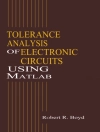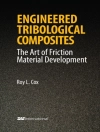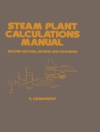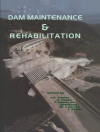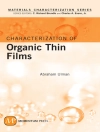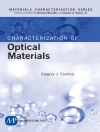This book reviews work that covers everything from basic chemistry to advanced applications. Chitin and chitosan are used in a plethora of applications from wastewater treatment to prosthetics.
After introducing the subject of polysaccharides as a whole, the authors turn to the preparation of chitin and chitosan and the characterization of the latter. The book provides information on chitin chemistry, extraction of chitin, chitosan preparation processes, and the applications of their derivatives in various fields. Among the applications that are included in detail are the adsorption of heavy metals for pollution prevention and clean-up, biosensors, cosmetics, various medical applications from anti-tumor activity to bone tissue engineering, agriculture and food production, and proton exchange membranes for fuel cells.
Chitin and Chitosan features:
• information on molecular structure, synthesis, properties, and latest research related to chitin and chitosan;
• coverage of a wide range of topics from the properties of chitosan to its derivatives and applications;
• in-depth information on biomedical applications of chitin and chitosan; and
• information that can be applied to other biopolymer processing engineering areas.
This book will be of interest to practitioners working in a wide variety of industries for which chitin and chitosan are useful materials, researchers in biosensors and heavy-metal adsorption, and to academic researchers investigating the properties, preparation, and uses of these materials.
قائمة المحتويات
Polysaccharides: An Introduction.- Chitin and Chitosan.- Chitosan Characterization.- Structural Differences between Chitin and Chitosan.- Preparation and Application of Chitosan Derivatives.- Adsorbent Heavy Metals Removal.- Chitosan-Based Sensors.- Application of Chitosan in the Medicine and Biomedicine.- Chitosan Use in Textiles.- Chitosan for the Agricultural Sector and Food Industry.- Applications of Chitosan in Fuel Cells.
عن المؤلف
Dr. Shameem Hasan is a nuclear engineer with experience in health physics and environmental science. His expertise includes specific research areas in chemical, environmental, and nuclear engineering. He is an author of over 35 publications including book chapters, journal articles, conference proceedings, technical abstracts, and industrial reports. His Master of Technology degree in Environmental Management centered on the production and synthesis of material, process design, regulations, and policies related to water, wastewater, hazardous, and radioactive materials. Shameem is actively involved in projects on medical isotope separations, new adsorbent materials, mechanisms, and processes for the treatment of industrial toxic wastes, bio-waste, hazardous waste, radioactive waste, and wastewater. He has hands-on experience in the medical use of radioisotopes, radiological accident assessment, and radiological emergency planning and response. Shameem has designed, fabricated, and successfully operated a pilot-scale heavy metal removal unit for treating industrial waste streams. His present research interests include mass transfer processes in adsorption and absorption: experimental and theoretical investigation, production/synthesis of adsorbent materials using bio-polymer, isotope separation, and nanoparticle synthesis and modifications. He holds patents in the area of adsorbents, isotope separation, and energetic nano-particles for thermite materials, and is a consultant on medical isotope separation, radioactive and industrial waste treatment.
Professor emeritus Dabir S. Viswanath’s research interests are polymer-ceramic composites, thermal degradation of polymers, thermodynamic properties of liquid mixtures, correlation of thermodynamic and transport properties, heterogeneous catalysis and materials. He received his Ph.D. from University of Rochester, and then taught as Texas A&M University and the Indian Institute of Science. He was a Professor at University of Missouri from 1979 and is now an Emeritus Professor. He received several honors and awards including the Pari Hargovadas Fellowship (Indian Institute of Science), the Lever Brothers Fellowship (University of Rochester), and the Halliburton Travel Awards (University of Missouri). He is a Fellow of the American Institute of Chemical Engineers.
Doctor Veera M. Boddu’s technical expertise is evidenced by the array of research projects he leads. He has research expertise in environmental separations (biosorption and membrane separations), advanced oxidation processes for degradation of ordnance-related compounds using nanomaterials, and air emissions control from Army stationary sources. He is a Fellow of the American Institute of Chemical Engineers, a Fellow of the American Institute of Chemists, a Member of the American Chemical Society, a Board-Certified Environmental Engineer (BCEE) by the American Academy of Environmental Engineers. He is a Registered Professional Engineer in the state of Missouri. He received a distinguished achievement medal from the US department of the Army for Civilian Service in June 2004. He also received an ERDC Commanders Award for Civilian Service in May 2008 and Research of the Year at ERDC-CERL in December 2008.
Doctor Tushar K. Ghosh has been Professor in the Nuclear Engineering Program at MU since September, 2004. Following his graduation with a Ph.D. degree in Chemical Engineering in July 1989, from Oklahoma State University in Stillwater, OK, he worked at MU as a Research Assistant Professor in conjunction with the Chemical and Nuclear Engineering Departments and the Particulate Systems Research Center. He was responsible for building several pieces of equipment that are currently being used in the Indoor Air Research Laboratories. His present research interests include nanoparticle production/synthesis, aerosol mechanisms, adsorption on charged particles, sensors for chemical and biological agents.


